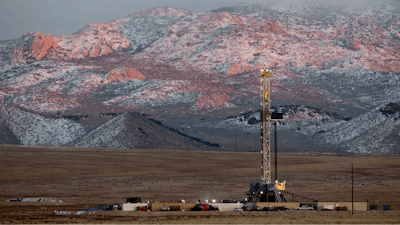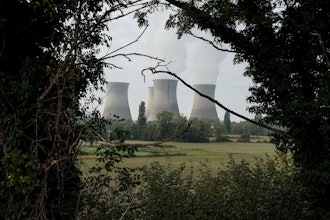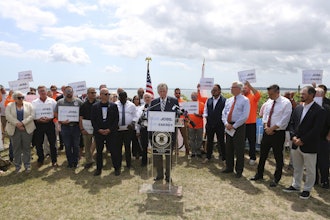
One method of making electricity cleanly to address climate change has been quietly advancing and on Tuesday it hit a milestone.
A California utility is backing the largest new geothermal power development in the U.S. — 400 megawatts of clean electricity from the Earth’s heat — enough for some 400,000 homes.
Southern California Edison will purchase the electricity from Fervo Energy, a Houston-based geothermal company, Fervo announced.
The company is drilling up to 125 wells in southwest Utah.
Clean electricity like this reduces the need for traditional power plants that cause climate change. The boost could go a long way toward bringing down the cost of a new generation of geothermal energy, said Wilson Ricks, an energy systems researcher at Princeton University.
Today the world still relies mainly on fossil fuels for round-the-clock power. This new deal shows that clean power can meet a growing demand for electricity, said Sarah Jewett, vice president of strategy at Fervo.
The first generation of geothermal plants, for example, The Geysers in California, tapped into superheated reservoirs of steam or very hot water close to the Earth's surface. Such reservoirs are relatively rare.
New geothermal companies are adapting drilling technology and practices taken from the oil and gas industry to create reservoirs from hot rock. That unlocks the potential for geothermal energy in many more places. Engineers have been working to advance the methods for years.
The United States is one of the world leaders in using the Earth’s heat to make electricity, but geothermal still accounts for less than half a percent of the nation’s total large-scale electricity generation, according to the U.S. Energy Information Administration.
Fervo is pioneering horizontal drilling in geothermal reservoirs. It signed the world’s first corporate agreement with Google in 2021 to develop new geothermal power and drilled three wells in Nevada. That project began sending carbon-free electricity onto the Nevada grid in November to power data centers there.
The Cape Station project, about 200 miles south of Salt Lake City, is expected to start delivering electricity to California as early as 2026.
California Energy Commission Chair David Hochschild said the state is committed to clean, zero-carbon electricity. He said geothermal complements wind and solar farms by providing steady power when it’s not windy or sunny, and that is key to ensuring reliability as the state cuts fossil fuels.






















